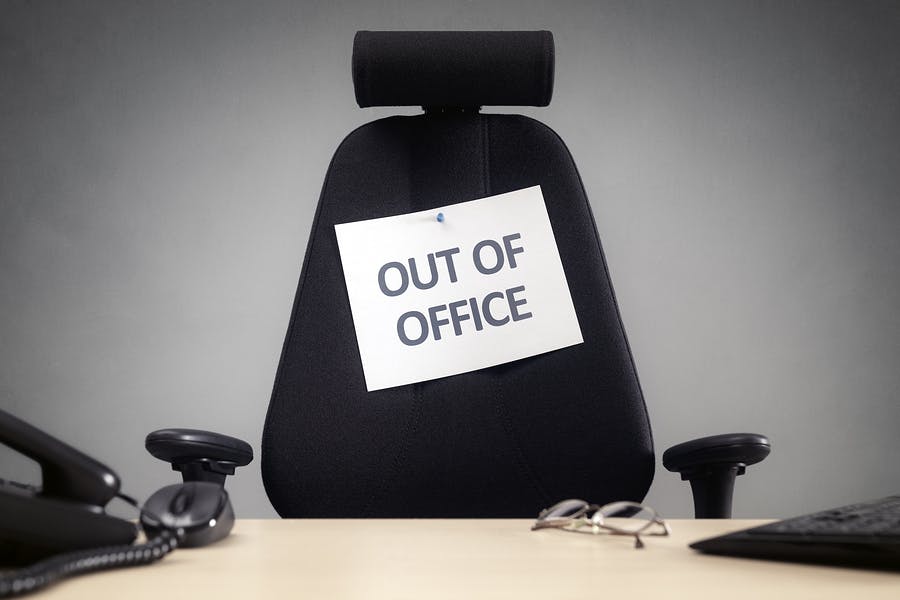Are you ready for Monday? Have you reminded the troops about the company’s sick leave policy? The rules about showing up late for work?
Have you given up? Probably a good idea, because you can’t win.
The day after the Super Bowl is never the most productive day of the year for employers. Absenteeism will hit a high, as more than a few of the 110 million+ Americans and Canadians who will watch the Eagles and the Patriots decide to stay home. And don’t expect much from those who do show up. Every manager — and plenty of actual research — will tell you that productivity on Monday will be just a word. If the game is anything like last year’s Super Bowl or the playoff between the Patriots and the Jaguars, wicked little will get done.
Challenger, Gray & Christmas, the global outsourcing firm that does all sorts of surveys and data dumps, guesstimates American businesses could lose around $1.8 billion in productivity on Monday just from those who show up late and spend part of the day yakking about the game. That goes up to $3 billion if the 16.5 million workers who told researchers in 2016 they were planning on taking the Monday off actually do
Last year, in a blatant publicity stunt, Heinz launched an online petition to make Smunday — the Monday after the Super Bowl — a national holiday. It garnered 71,000 signatures, not enough for the food products company to send it to Congress, but enough to get media attention, including by us.
Parents more likely to call in
This year Mucinex (yes, the over-the-counter cold remedy product) is trying to cash in, sponsoring some humorous advertising about calling in, ahem, sick on Monday, and sponsoring with The Workforce Institute at Kronos, the Super Bowl absenteeism survey. Besides the humor (watch the video, it’s only 15 seconds), the survey did turn up some interesting findings. For example: A majority of people said if they were going to call in sick, they’d make the decision after the game starts or the next day; 21% of workers with young kids say they’re likely to stay home Monday versus 5% of those with kids older than 18.
https://youtu.be/Lys6KVoac0I
Needless to say (but I’m going to anyway) no survey on the subject would be complete without asking whether Monday should be a national holiday. For a freebie day off, I’m surprised only 25% said yes. Now even though a presidential candidate actually took up the cause, no one seriously expects Smunday to ever become a national holiday, which leaves everything up to individual employers.
In a TLNT post yesterday, Graham Walters explains why his company, a fantasy sports site, gives its employees the Monday off. To make the case to the CEO, he says the staff “presented him with the statistics on employee productivity (or lack thereof), as well as some numbers proving the positive effects of giving the staff that Monday off. We simply gave him the facts and made a convincing argument. If you find yourself in a similar situation, I encourage you to do the same.”
So let’s look at some stats:
- 72% of HR managers want Monday to be a day off;
- 19% of workers have called in sick on the Monday after the Super Bowl;
- 27% of employees have called in sick or skipped work on the day after any major sporting event;
- More men than women are likely to be out sick (36%) or come in late (42%) on Monday, and more younger workers will do that than will those over 35;
- 43% of those attending a Super Bowl party said that’s the main reason they requested Monday off;
- 65% of employers report having office pools for the Super Bowl;
- 70% of HR professionals in a SHRM survey said office pools positively affected relationship building.
Those last two stats are not directly related to productivity, but indirectly, well, someone has to set up the pool and collect the money, all of which takes time. And those pools can have unanticipated consequences, which Fisher Phillips Attorney Richard Meneghello pointed out in a recent article:
“You should be more concerned about problems that can befall an office when large amounts of cash are floating through the building. Also, some workers might feel pressured to join despite religious objections they have to gambling, or just because they don’t feel like they can afford to join in. Finally, some of your workers might be ‘sore losers’ and not react well to losing money to a coworker, leading to toxic discord in the workplace.”
So, now that I’ve reminded you of just how much fun Monday is going to be, here’s some advice for those HR pros who do show-up from Joyce Maroney, Executive Director, The Workforce Institute at Kronos: “Employers are likely to notice quieter workplaces come Monday, and our advice is to embrace the Big Game and use it as an opportunity to build camaraderie in the workplace, while encouraging employees to communicate their likely need for a day off well before kickoff.”
